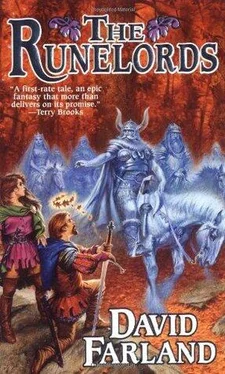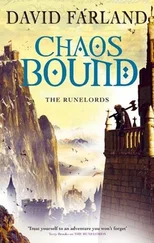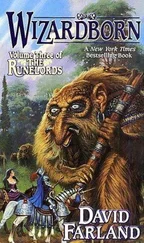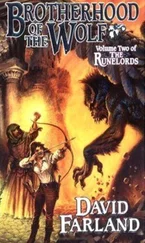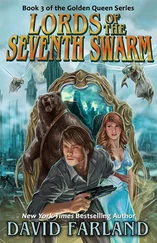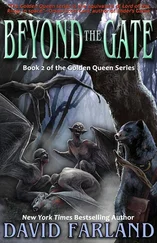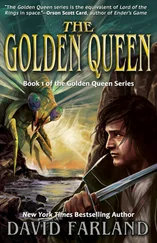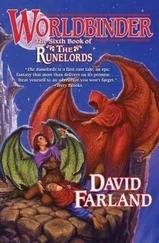David Farland - The Sum of All Men
Здесь есть возможность читать онлайн «David Farland - The Sum of All Men» весь текст электронной книги совершенно бесплатно (целиком полную версию без сокращений). В некоторых случаях можно слушать аудио, скачать через торрент в формате fb2 и присутствует краткое содержание. Жанр: Фэнтези, на английском языке. Описание произведения, (предисловие) а так же отзывы посетителей доступны на портале библиотеки ЛибКат.
- Название:The Sum of All Men
- Автор:
- Жанр:
- Год:неизвестен
- ISBN:нет данных
- Рейтинг книги:3 / 5. Голосов: 1
-
Избранное:Добавить в избранное
- Отзывы:
-
Ваша оценка:
- 60
- 1
- 2
- 3
- 4
- 5
The Sum of All Men: краткое содержание, описание и аннотация
Предлагаем к чтению аннотацию, описание, краткое содержание или предисловие (зависит от того, что написал сам автор книги «The Sum of All Men»). Если вы не нашли необходимую информацию о книге — напишите в комментариях, мы постараемся отыскать её.
The Sum of All Men — читать онлайн бесплатно полную книгу (весь текст) целиком
Ниже представлен текст книги, разбитый по страницам. Система сохранения места последней прочитанной страницы, позволяет с удобством читать онлайн бесплатно книгу «The Sum of All Men», без необходимости каждый раз заново искать на чём Вы остановились. Поставьте закладку, и сможете в любой момент перейти на страницу, на которой закончили чтение.
Интервал:
Закладка:
But the land lay empty now. Wherever a farmhouse or a barn or a dovecote had stood, now there squatted only a blackened ruin, like an open sore upon the land. All the gardens and orchards had been harvested. Not a cow or horse or pig or duck could be seen in the fields.
Myrrima understood why the people of Longmont had done it, why the soldiers had burned the town, salted their own wells. They would not give succor to Heredon's enemies. So they had destroyed everything of value near the castle.
This land...looked too much like the fertile fields of Bannisferre. That was why Myrrima mourned it. Seeing the houses black, the fields empty, gave her a chill, for it seemed a portent of the future.
When the wagon reached the castle gates, the gates stood closed. The guards nervously watched the fields and hills to the west.
Seeing the men who stood on those walls, Myrrima became even more nervous. If most of those defenders were common boys like those she rode with, how could Orden hope to defend himself against Raj Ahten's Invincibles?
“Who are you? Where do you hail from?” a guard at the gate asked gruffly.
“Bannisferre,” Wyeth Able shouted, raising his bow. “We've come to avenge the deaths of our people.”
Above the gates, on the castle wall, stepped a man with a broad face, wide-set smoldering eyes. He was dressed in full armor. His fine breastplate was enameled with the image of the green knight, and he wore a cape of shimmering green samite, embroidered with gold.
King Orden.
“Can you gentlemen hit anything with those bows?” Orden asked. “Raj Ahten's soldiers move quickly.”
“I've dropped my share of pigeons,” Wyeth answered.
Orden jutted a chin at Wyeth's portly figure. “I'd say you'd dropped more than your share of pigeons. Welcome.”
Then his eyes lighted on Myrrima, and there was such admiration in them that his glance took her breath away.
“And what have we here, a swordswoman? A noble?”
Myrrima looked down at her hands folded in her lap, more from shyness than from respect.
“A friend...of your son's. I'm betrothed to one of your guard—Borenson. I came to be with him. I'm no swordswoman, but I can cook a good stew, and I can wrap bandages.”
“I see,” Orden said softly. “Borenson is a worthy man. I had not known he was betrothed.”
“Only recently,” Myrrima said.
“Milady, he has not reached the castle yet. I'd hoped he would have come by now, but I left him with an assignment at Castle Sylvarresta. I hope to see him shortly, but to tell the truth, Raj Ahten's troops will also reach us soon. I cannot say who will reach us first.”
“Oh,” Myrrima said, thinking furiously. Borenson did not expect her, and she had not imagined he would be occupied elsewhere. She had no illusions about how well this battle might go. But in the short time she'd had with Borenson, she'd grown to see how important devotion was to him. It did not occur to her to think that he might have failed his mission, that Borenson might already have died.
She wanted to be with him now, in his hour of need. For in her family, devotion to loved ones was all that had ever allowed them to survive.
Myrrima licked her lips. “I'll wait for him here, if you don't mind.”
38
The Hope
Just after dawn, Iome and Gaborn rode to the tiny village of Hobtown, twenty-two miles northwest of Longmont. Hobtown was a collection of fifteen cottages with a smithy. But on Saturdays, like today, a few farmers brought merchandise to town to exchange.
So when Gaborn, Iome, and King Sylvarresta rode into the village, a couple of people had already wakened. The horses needed food and rest.
Iome spotted a young woman, perhaps twelve, digging onions and leeks from her garden. Clover grew high next to the garden fence. Iome called out, “Excuse me, good lady. May we let our horses graze on your clover?”
The girl said, “Of course, you're welcome to...it.” She'd turned at the last moment, and froze at the sight of Iome.
“Thank you,” Gaborn said. “We'd gladly pay, if we may purchase something for breakfast.”
The girl turned, stared at Gaborn, pointedly avoiding the sight of Iome, trying to regain her composure. “I have bread from last night, and some meat,” she offered, delighted at the prospect of money. In a farming community such as this, barter was the norm, and a man could live from one season to the next without feeling the weight of a worn coin in his palm.
“Please, that would be good,” Gaborn said.
The girl dropped her onion basket, ran into the house.
Iome tried to calm herself, to forget how the girl's slight had affected her, made her feel worthless and wretched.
Iome's father had drifted to sleep in the saddle last night. Iome felt glad of it. King Sylvarresta had fallen from his horse, spent much of the night sobbing. Gaborn now held the King in the saddle in front of him, the way one might hold a child.
The mounts began to tear at the clover, ravenous.
Iome looked about. The cottages here were of stone and wood, with thatch roofs. Flowers and herbs grew from pots beneath windows made of real glass. The few people in Hobtown seemed wealthy enough.
The town occupied a lovely meadow between the oak-covered hills. Bachelor's buttons and pinks grew wild in the grass, alongside daisies. Fat cattle grazed just outside town. Rich. This town is rich in contentment, Iome thought.
If Gaborn's fears proved true, Raj Ahten's army of reinforcements would march through this town today. Something of great value would be lost, a sort of innocence.
Iome looked up, caught Gaborn smiling at her. Yet only a moment before, the girl had put her hand to her mouth in horror at the sight of Iome.
Iome feared she'd never be beautiful again. Yet when Gaborn turned his gaze on her, he made her feel that she'd never lost her glamour.
“How do you do that?” Iome said, grateful for his attention.
“Do what?”
“How do you look at me like that and make me feel beautiful?”
“Let me ask you another question,” Gaborn said. “In Internook, a woman must have flaxen hair to be beautiful, but in Fleeds she must have red hair and freckles. In Mystarria, our people have long admired women with wide hips and pendulous breasts. But here in Heredon, beautiful women must have small, pert breasts and boyish figures.”
“All over Rofehavan, women must be pale to be beautiful. But in Deyazz they must be dark and brown. Also in Deyazz, the women wear heavy golden earrings that pull down the ears. But here, such enlarged ears would seem grotesque.”
“So I ask you, who is right? Are all these women really beautiful, or are they all ugly, or are they all the same?”
Iome considered. “Perhaps physical beauty is only an illusion,” she said. “And you look beyond the illusion?”
“I do not think beauty is an illusion,” Gaborn said. “It's just so common, we often don't see it. It is like these meadows: We as travelers see the flowers, but the townsfolk probably seldom notice how handsome their lands are.”
Iome countered, “But what if our beauty is taken from us, and there is nothing left to see?”
Gaborn's horse stood next to hers, and it shifted its feet, so Gaborn's knee suddenly touched Iome's. “Then you should rejoice,” Gaborn said. “People can be beautiful on the inside, too. And when they feel most bereft of outer beauty, then they so long to be beautiful that they rearrange their hearts. And beauty springs from them, like these flowers spring from this field.”
“When I look inside you,” Gaborn said, staring at her, staring into her, “I see your people smiling. You love their smiles, above all. How can I not love what is in your heart?”
Читать дальшеИнтервал:
Закладка:
Похожие книги на «The Sum of All Men»
Представляем Вашему вниманию похожие книги на «The Sum of All Men» списком для выбора. Мы отобрали схожую по названию и смыслу литературу в надежде предоставить читателям больше вариантов отыскать новые, интересные, ещё непрочитанные произведения.
Обсуждение, отзывы о книге «The Sum of All Men» и просто собственные мнения читателей. Оставьте ваши комментарии, напишите, что Вы думаете о произведении, его смысле или главных героях. Укажите что конкретно понравилось, а что нет, и почему Вы так считаете.
